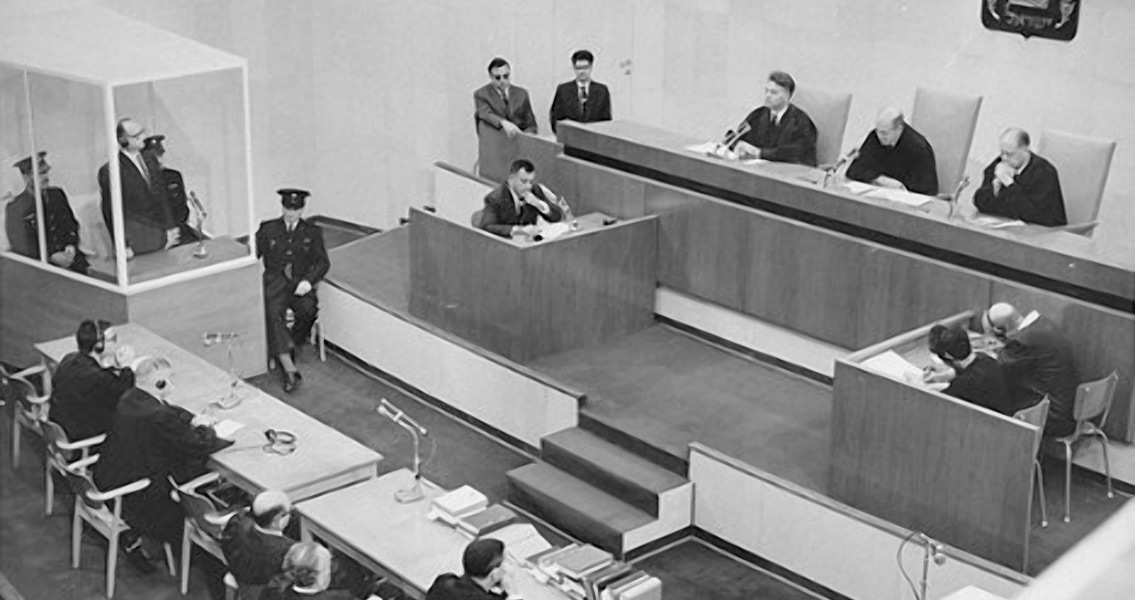<![CDATA[A letter written by Adolf Eichmann, after his conviction as a Nazi war criminal and two days prior to his execution, has been released by Israel and recently put on display as part of an event marking International Holocaust Remembrance Day. The letter, along with letters from Eichmann’s wife and brothers, are pieces of an exhibition located at the home of President Reuven Rivlin commemorating the Eichmann trial. Although Eichmann’s letter and clemency plea were known, the letter, written in German and then translated to Hebrew, was just recently discovered during a digital archiving program. It was written to the Israeli President at the time, Yitzhak Ben-Zvi, following Eichmann’s trial. In the letter, Eichmann refuses to admit to any guilt for the Holocaust. He claims “In their evaluation of my personality, the judges have made a significant error, since they cannot put themselves in the time and situation I was in during the war years.” In the letter, Eichmann contends that he was never in a position to make either independent or decisive decisions, that in fact he always acted “on orders”. Even though he was a lieutenant Colonel with the SS, in addition to being one of the Holocaust architects, he goes on to argue he was “not a responsible leader” and was “forced to serve as a mere instrument in the hands of the leaders.” Otto Adolf Eichmann (born March, 19, 1906) is known as a major organizer of the Holocaust. He was given the responsibility of managing and facilitating the logistics associated with the mass deportation of Jewish citizens to the ghettos and ultimately to the extermination camps in German-occupied Europe during World War II. In 1960, He was caught in Argentina by Israel's intelligence group, Mossad. He was hanged in 1962 after being found guilty during his highly publicized war trial in Israel. After leaving school, Eichmann briefly worked in the mining company owned by his father in Austria, where the family had lived since leaving Germany in 1914. Starting in 1927 he sold oil as a travelling salesman. He joined the Nazi Party in 1932, and the Security Service (Sicherheitsdienst) after returning to Germany in 1933. He was appointed to lead the department that was responsible for all Jewish affairs, namely emigration, which was often encouraged by the Nazis using economic pressure and violence. After the start of WWII (September, 1939) Eichmann, along with his staff, planned and organized the moving of Jews into the ghetto areas within major cities, expecting to transport them either farther east or overseas. Eichmann prepared plans for two Jewish reservations, in Poland and Madagascar, which were never carried out. International Holocaust Remembrance Day (January, 27th) was declared an international day of remembrance by the United Nations General Assembly on November, 1, 2005, to commemorate the genocide by the Nazi’s which resulted in the death of over 6 million Jewish people, 250,000 physically and mentally disabled people, 2 million Romani people, and 9,000 homosexual males.]]>
Nazi Adolf Eichmann’s Letter Pleads Innocence
